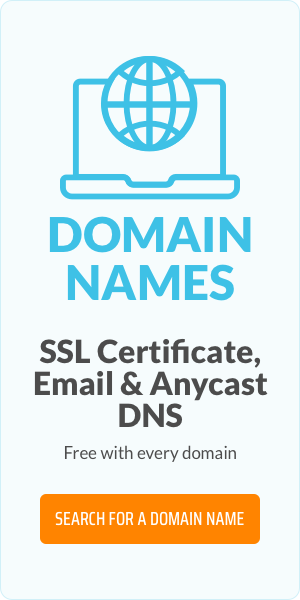3 reasons why domain privacy protection is worth investing in

Is domain privacy protection worth it? It is if you don’t want your name, address, email, and phone details exposed to the whole world. Fortunately, for those of us who value our online anonymity, opting for privacy is a simple, effective, and – perhaps best of all – inexpensive option.
What good is domain privacy?
When you purchase your domain, your registrar – aka, EuroDNS – is required by ICANN to report your name, address, email address, and phone number to WHOIS, a system which maintains public records of every person or organisation – aka, you – who has registered a domain or IP address.
This information ensures that domain owners are accountable, not using a domain, say, to scam visitors. The WHOIS database also serves as the Internet’s phonebook, ensuring that visitors have a way to access contact information should they need to get in touch with a website’s owner for any reason.
But, as you might suspect, the personal details you provide WHOIS can also be used for dishonest purposes. Some of the hassles you might end up experiencing due to lack of domain privacy might include unwanted sales people, spammers, and con artists of all types flooding your voicemail and inbox.
Or, as we described in a previous blog post, it’s not hard to imagine a situation in which a dishonest registrar, under the guise of “renewal services”, gets a hold of your contact information only to trick you into reregistering your domain name with them, a scam which will cost you in transfer and renewal fees you may not be fully aware of.
It is for these reasons we strongly encourage you to invest in domain privacy protection. Anyone with a mind to can access and use for any purpose your personal data. The more you do to make your details difficult to acquire, the safer you will be.
Does everyone need domain privacy?
You are not required to add domain privacy when you register a domain. In fact, larger, well-known businesses often don’t feel the need as their contact information is already public. But, unless you are Amazon, activating domain privacy is probably a good choice.
Small businesses and blogs
Small business owners and bloggers will likely find domain privacy a safe move. Do you really want your home address to be made public? Why have this personal information exposed to everyone - especially individuals who won’t think twice before putting you at risk?
Websites
Likewise, websites which publish what some might consider to be objectionable or controversial subject matter should also consider activating domain privacy. The last thing you want to become is an easy target for someone who takes issue with your site.
Individuals
Websites are hacked and identities are stolen all the time. One simple step you can take to make yourself less vulnerable is to remove your personal details from WHOIS. The less exposed you are, the more protected you’ll be.
How do I activate domain privacy?
It’s easy!
Step one: Purchase domain privacy when you register your domain name(s) with us. (If you didn’t do this, don’t worry. You can always purchase domain privacy for already-registered domains.)
Step two: For each of your registered domains, select the option to make your information private.
And voila. You’re done. (But should you need slightly more information, here’s an easy-to-follow guide which breaks down even further the simple steps you’ll need to take to activate domain privacy).
The WHOIS database will show proxy contact information for your domain. And you will remain the legal owner of your domain name(s) without any of the hassles you could end up experiencing when you share your contact information.
But keep in mind a caveat: not all registries allow the use of domain privacy so, in some cases, privacy isn’t an option. Be sure to check the registration requirements for each domain. In fact, we’ve made it easy for you. See our domain extensions list which indicates the registries that do and do not allow this option.
Activating domain privacy with EuroDNS is simple, effective, and – yes – cheap! At just 5 euros a year, you can’t afford to not do it!
How to choose a domain name that will connect with consumers
Related articles:
